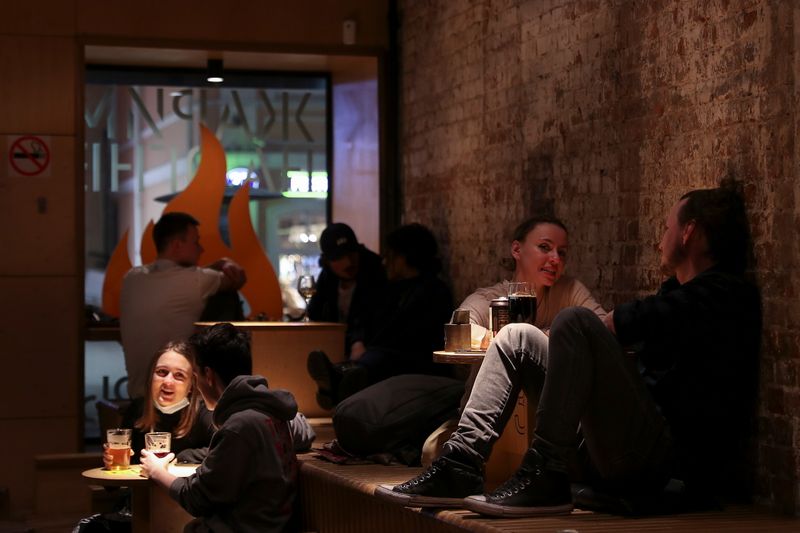MOSCOW (Reuters) - The coronavirus pandemic is on the decline in Moscow, Mayor Sergei Sobyanin said on Wednesday as he abolished some COVID-19 restrictions, allowing bars, restaurants and nightclubs to open overnight.
New COVID-19 cases in the Russian capital have not exceeded 3,000 in the past week and more than 50% of beds in coronavirus hospitals were vacant for the first time since mid-June, Sobyanin wrote on his personal blog.
Russia, which launched a voluntary vaccination programme with the Russian-made Sputnik V vaccine in December, has seen cases steadily fall in the last month, since a record daily rise on Dec. 24. It has resisted imposing a strict new lockdown, relying instead on targeted measures.
"The pandemic is on the decline and under the circumstances our duty is to create conditions for the quickest possible recovery of the economy," said Sobyanin.
"My warmest congratulations to you, friends, on our joint victory and one more step to a return to normal life in the beautiful city of Moscow.
The mayor lifted a ban on entertainment venues, including restaurants, bars and nightclubs, serving customers between 11 p.m. and 6 a.m., a measure that has been in place since Nov. 13.
He also said that businesses would no longer have to have at least 30% of employees working remotely.
"Please remember that the likelihood of being infected with coronavirus, though reduced, still exists. The fight is not yet over. We still should exercise caution," Sobyanin said.
Measures requiring state-run universities to operate remotely, with distanced learning for students, would be reviewed on Feb. 6, Sobyanin said.

The requirement for citizens to wear masks in shops and on public transport remains.